Gillian Robespierre’s Landline has two main goals: to be a comedic portrait of the complicated (and sometimes impossible) nature of love and family, as well as a loving ’90s period piece. Despite a strong start, the film never quite gets either of these things right. Landline is never sympathetic, human or relatable enough to make its thematic concerns worthwhile, and it never manages to push its ’90s pastiche anywhere beyond the realm of mild distraction.
The idea here is to show a mid-’90s Manhattan family in the throws of tumult. There’s the long-married Pat (Edie Falco) and Alan (John Turturro), the former a no-nonsense wife with little patience, the latter a failed writer toiling away writing ad copy for knock-off Oreos. They have two daughters, the oldest being Dana (Jenny Slate), who’s in an awkwardly floundering relationship with her fiance Ben (Jay Duplass); and Ali (Abby Quinn), who spends her school nights sneaking out to raves, experimenting with drugs and sleeping with her boyfriend (Marquis Rodriguez).
The plot is driven by a couple of different things: Ali discovering that her father is probably cheating on their mother — and further aggravating her rebelliousness; and Dana cheating on her fiance with Nate (Finn Wittrock, who looks like Singles-era Matt Dillon, about the only period-specific thing the movie gets right) and questioning the totality of her future. As a foundation, all of this is fine, and Robespierre (Obvious Child) has a handle on her characters’ neuroses and the ways they interact with one another. Generally, they act like a family with fully formed histories and complicated relationships, something that makes the final scenes — which really do illustrate the imperviousness of even a dysfunctional family — work well.
The problem is that Robespierre can’t quite fill in the cracks between Landline‘s major, overarching points and what comes before. There’s no one here to truly latch onto, no emotional center. This isn’t to say that all of the characters are obnoxious, but there’s something that makes them all not quite relatable. Dana’s a bit overbearing in her floundering, and her reasons for staying with Ben are more born from a self-serving fear than anything truly revelatory, while the rest of the cast falls into boring, self-important platitudes on the importance of family and love. Too often, the film looks and feels like a sitcom, right down to some hokey stuff about the dangers of drugs.
And this is all before we get to the film’s main gimmick, its ’90s setting. I do call this a gimmick because I’m not sure what purpose it really serves to the movie as a whole. About all I can figure is that it takes cellphones out of the equation so Dana can avoid Ben at her parents’ house for a chunk of the movie, but that’s hardly a reason to go to so much trouble for a half-baked conceit. I suppose the whole thing is supposed to pay homage to movies like Cameron Crowe’s Singles (1992) and Ben Stiller’s Reality Bites (1994), but why? And, for that matter, how? If it’s to indulge in a ’90s soundtrack, fine, but you can do that in 2017, too. And I’m all for putting The Breeders in more movies, but the music is never used with any inspiration. Even the conceit of an all-’90s soundtrack is pushed aside for a modern track that’s not actually used for any greater thematic content. It all makes for a movie that’s a bit shoddy, despite the handful of things it gets right. Rated R for sexual content, language and drug use. Opens August 4 at Grail Moviehouse.


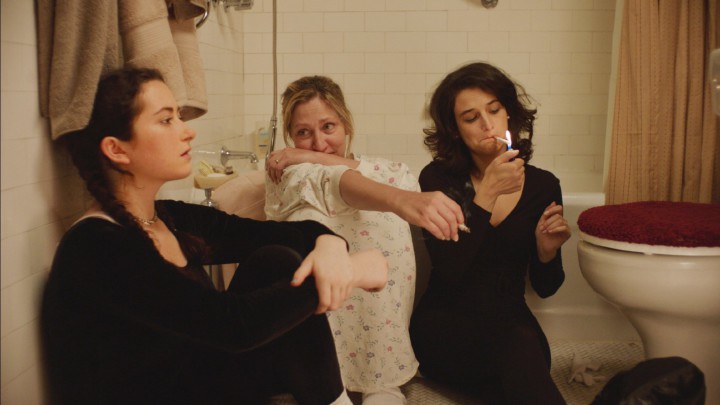
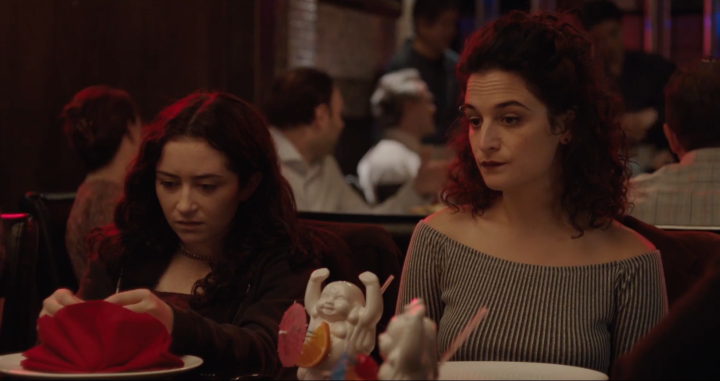

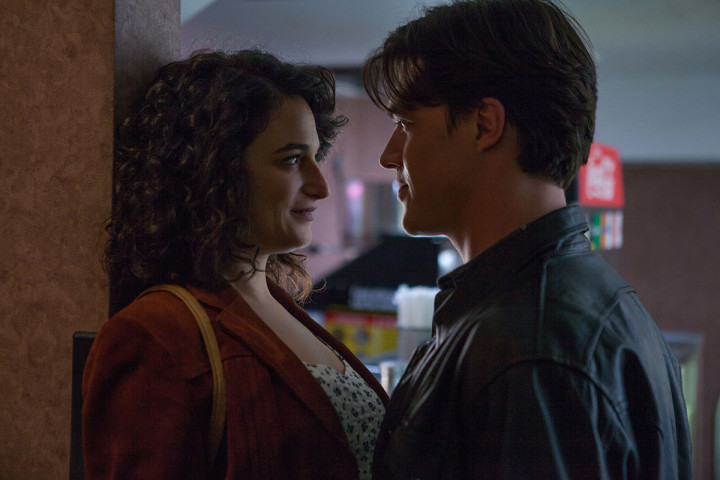
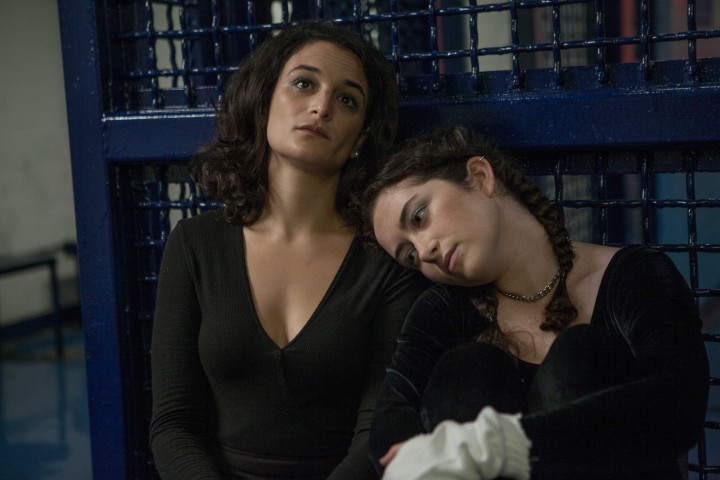
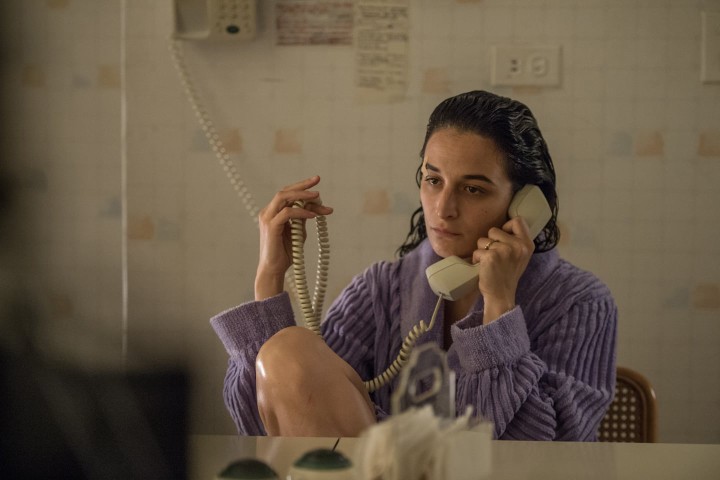

I loathed the 1990s, but this movie was less about a particular decade than about the entire pre-smartphone era, when people actually talked to each other, so I enjoyed it.
I especially loved starting out with a Steve Winwood song, even if he (as a solo artist) did belong more to the 1980s, the decade I cherish. “Break Me a Higher Love”, indeed!